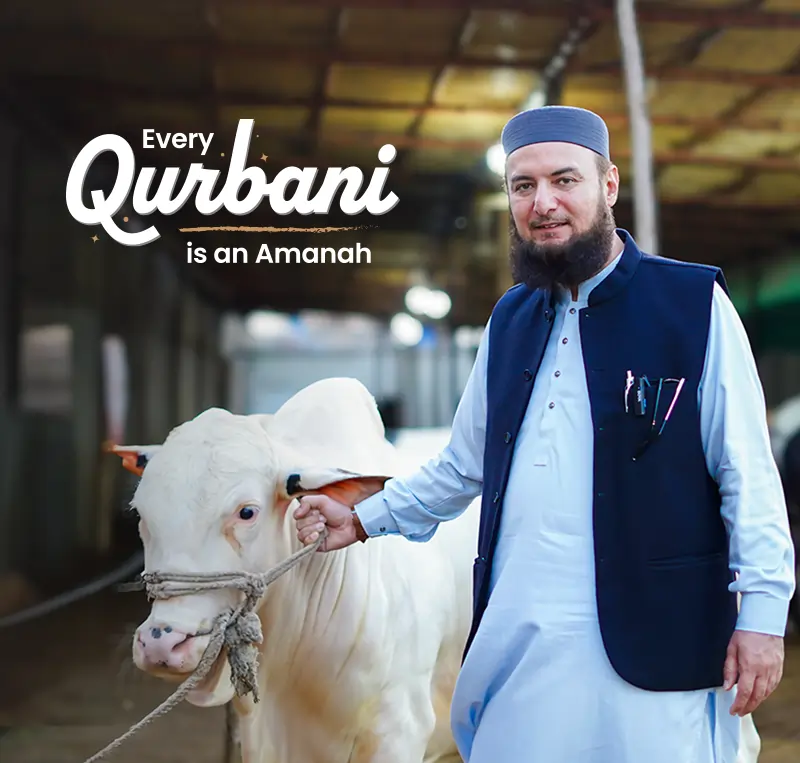
This Eid ul Adha, give the gift of Qurbani to those who have been struggling to put food on their table every day. Al-Wahab Foundation ensures to deliver your sacrifice responsibly to the most deserving families, bringing joy and blessings to their homes. Fulfill your Qurbani this year with Al-Wahab Foundation and make the less fortunate a part of Eid festivities.
Many underprivileged families lack the facilities to store Qurbani meat, which often prevents them from fully benefiting from this sacred occasion.
Recognising this challenge, Al-Wahab Foundation takes a thoughtful and impactful approach by preparing and distributing freshly cooked, nourishing meals to the most deserving on Eid Al-Adha.
This initiative ensures that even the most vulnerable are included in the celebration and that the blessings of Qurbani are shared with dignity, compassion, and care.
Al-Wahab Foundation always ensures to make your Qurbani reach the most deserving individuals and families through Qurbani Appeal. Due to financial hardships and unemployment, offering the obligatory Qurbani is like a distant dream for many. Your Qurbani donation can significantly impact countless lives this Eid Al-Adha ensuring sacrificial meat reaches a maximum number of people. Give Qurbani 2025 to AWF and share the blessings with everyone around.
The blessed month of Dhul-Hijjah is the time of reflection, gratitude, and giving which is considered important for Hajj and Eid Al-Adha. It is a remembrance of Sunnah of Prophet Ibrahim (AS) referencing back to Islamic history, making it one of the most anticipated times of the year. As we come together to observe this meaningful time, AWF Qurbani Appeal 2025 calls for sharing the blessings with the underprivileged ensuring to make them a part of Eid celebrations.
With your Qurbani donation, Al-Wahab Foundation can feed families struggling with poverty and the rising cost of living. Join hands to support our Qurbani Appeal and share joy with those who are unable to fulfill this obligation.

Scholar Verified
This is to ensure that the above-mentioned details are all authenticated by the Islamic Scholar Mufti Abdul Wahab and are accurate according to Shariah guidelines.
For more information, visit our scholar's page or contact us for queries.
Every year with your Qurbani donations we ensure that people living in the most difficult conditions can benefit from your support. With your generous donation to AWF Qurbani Appeal, together we touched countless lives while sharing the blessing of Eid Al-Adha. Your Qurbani donation provided sacrificial meat to 31,832 beneficiaries through Qurbani appeal giving them hope and nourishment.
This Dhul-Hijjah, donate your Qurbani to feed communities in need. Your Qurbani 2025 can make a meaningful impact by making the vulnerable families a part of Eid Al-Adha festivities reflecting upon Sunnah of Prophet Ibrahim (AS). Make your online Qurbani donation to AWF and support those in need this Eid Al-Adha.
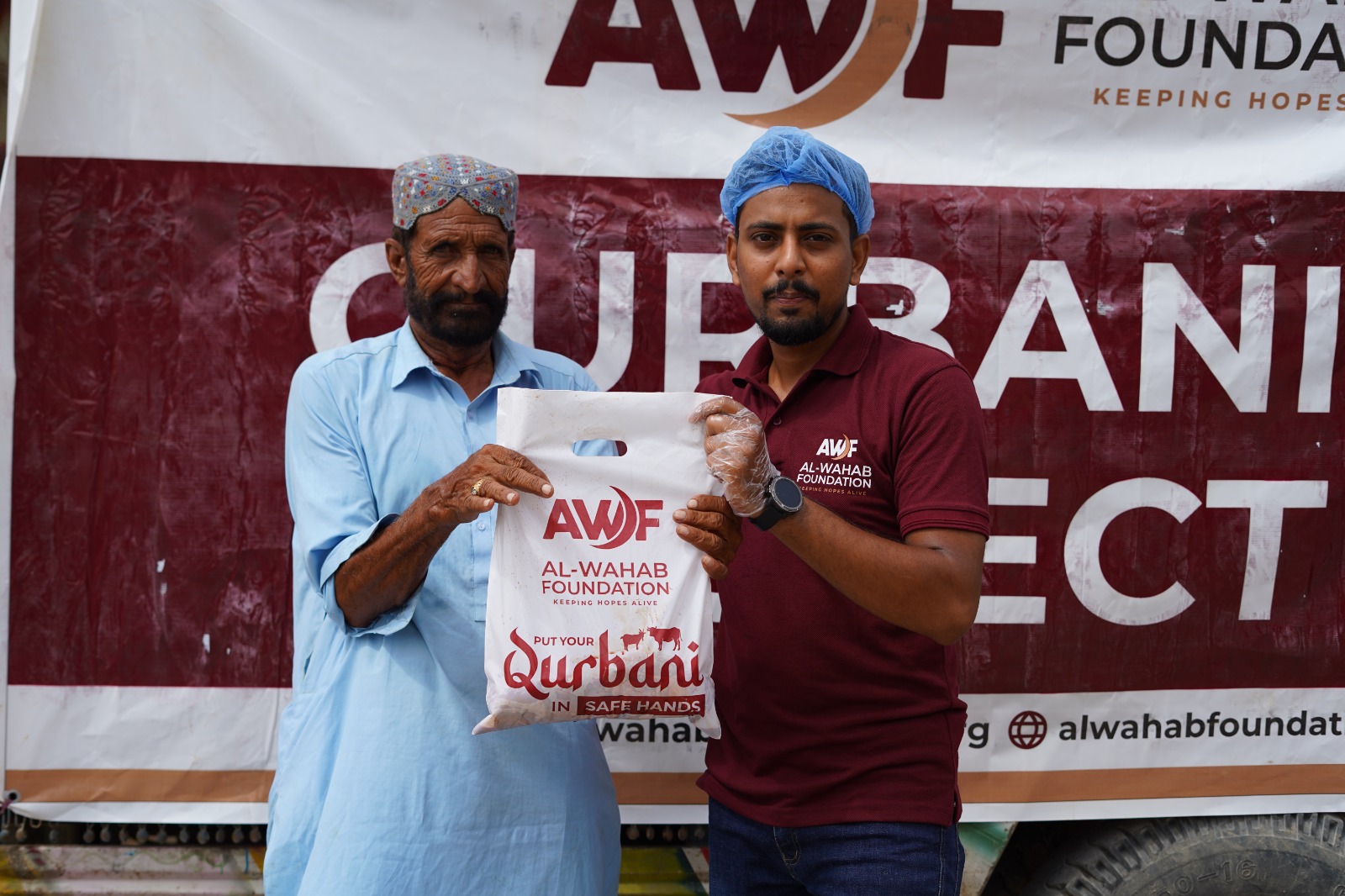
My name is Leema, and I belong to Mirza Muhammad Ali Goth, a deprived area in Sindh. Life here is full of struggles, and the hardest of all is the daily battle for food. We never know if we’ll have enough to eat, and many nights, we go to bed with empty stomachs. Every year, when Eid Al-Adha comes, we cannot afford to perform Qurbani. However, we are incredibly grateful to Al-Wahab Foundation and Mufti Abdul Wahab. Their generosity has allowed us to receive the sacrificial meat. None of us could ever perform Qurbani on our own, but thanks to them, we are able to feel the warmth of Eid. Thank you, Al-Wahab Foundation, for making us part of Eid and for giving us something to celebrate.
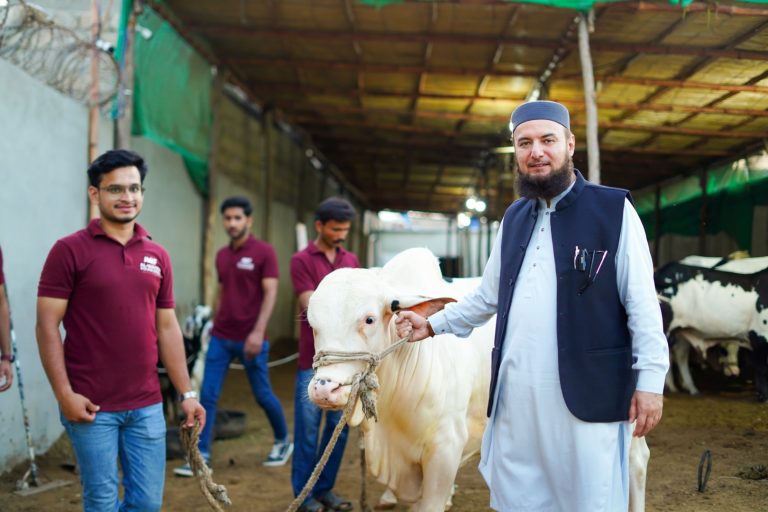
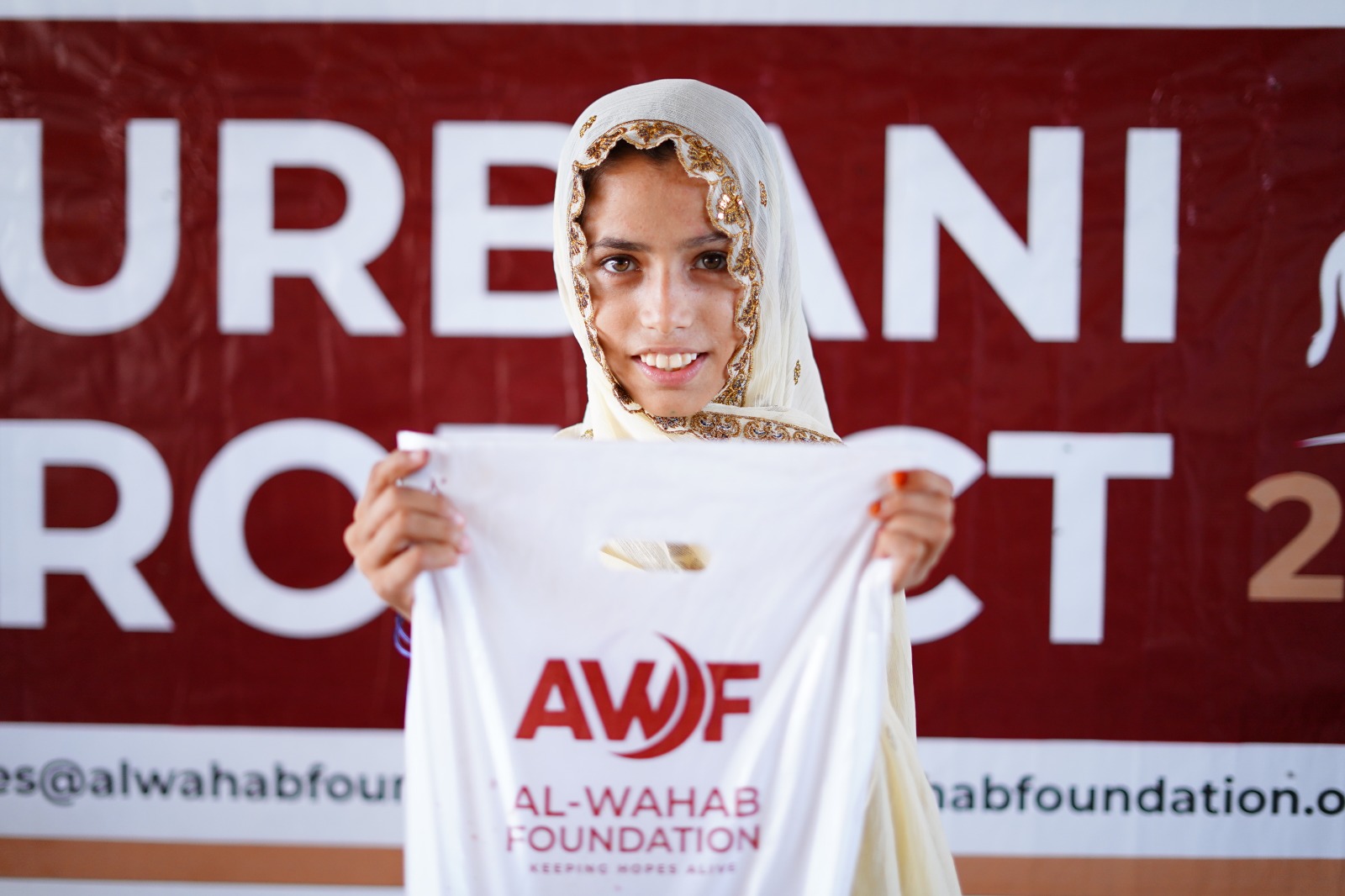
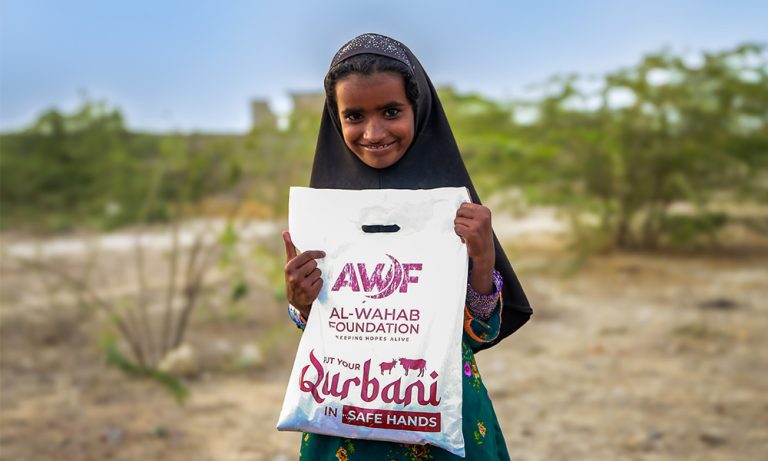
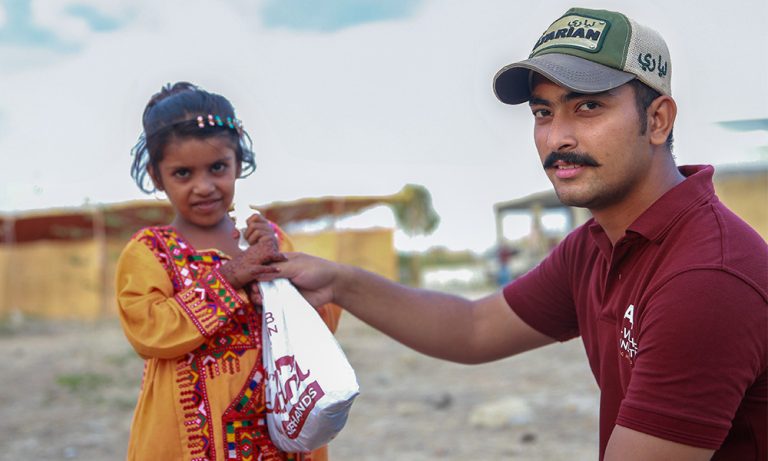
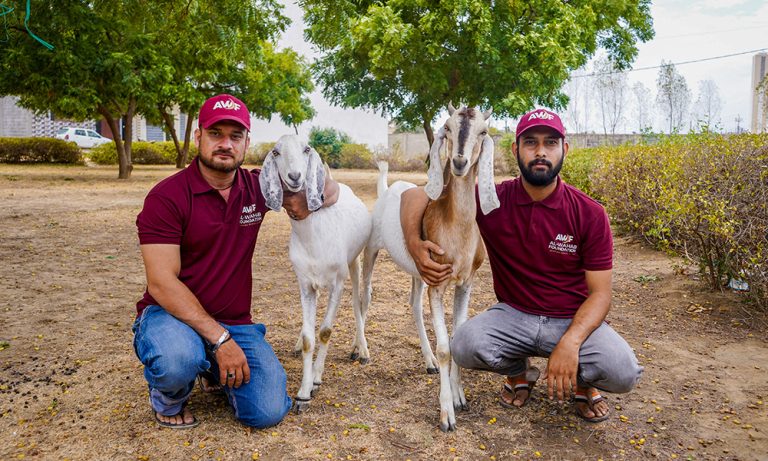
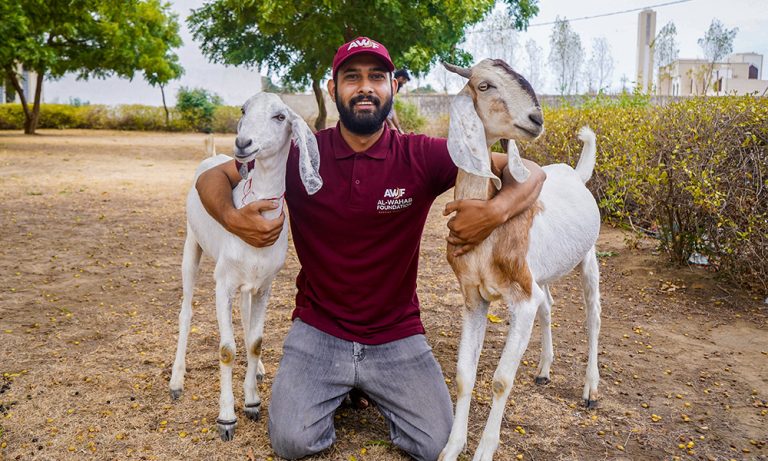
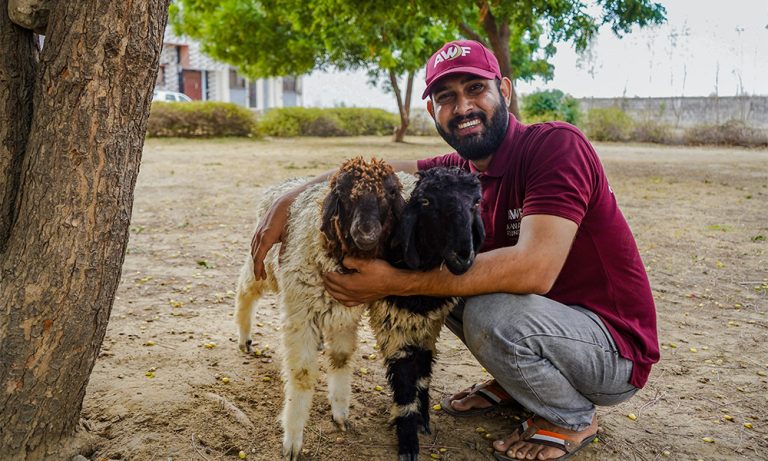
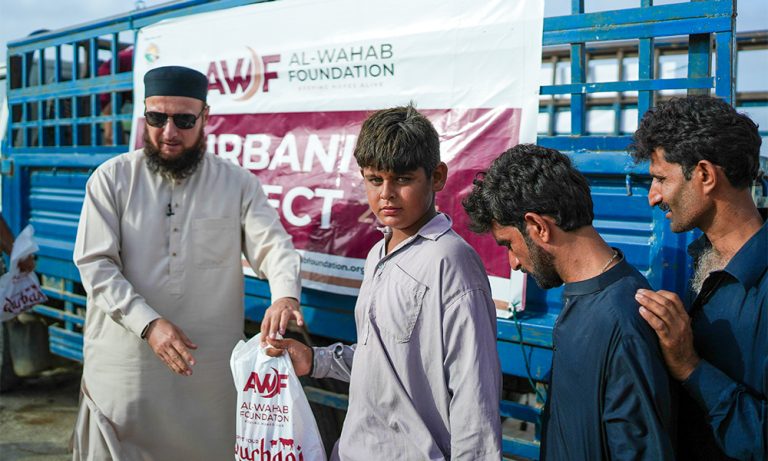
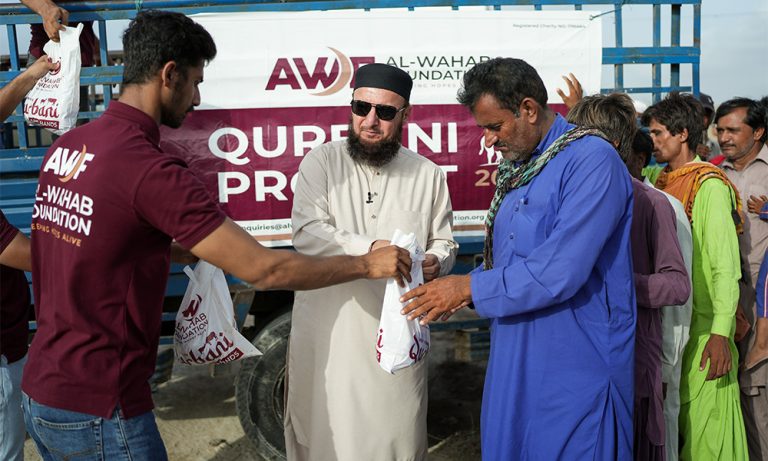
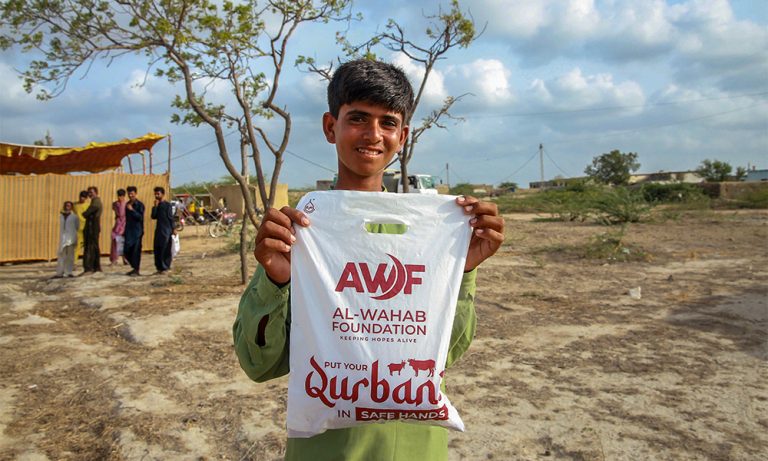
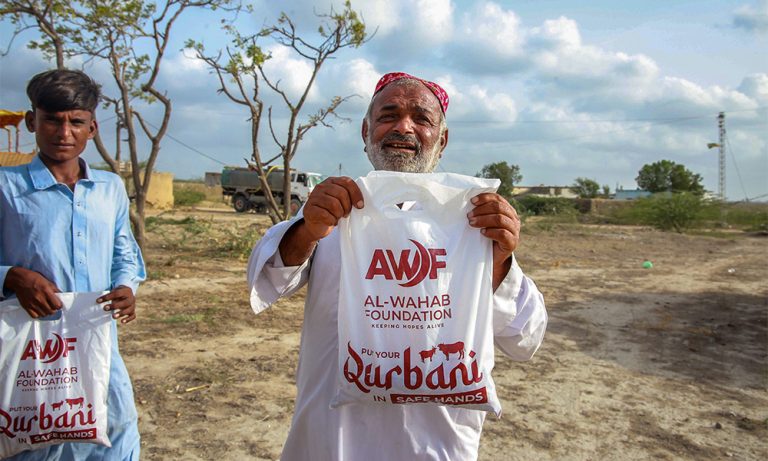
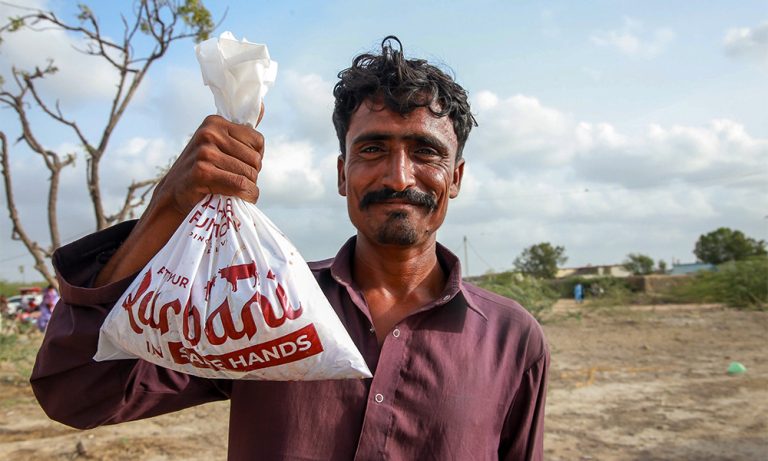
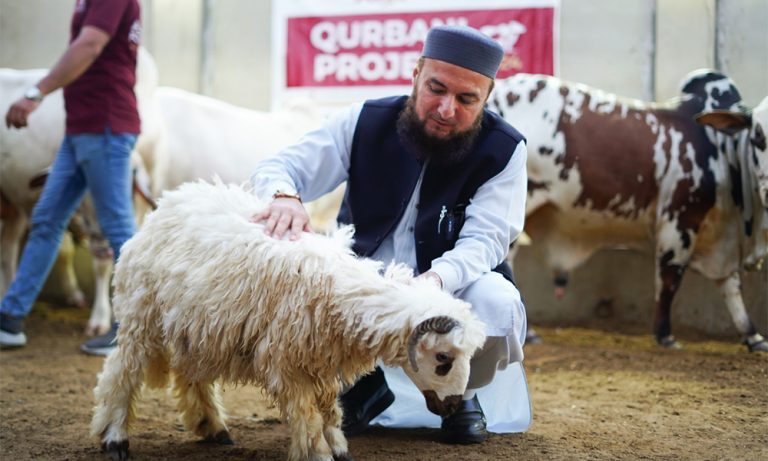
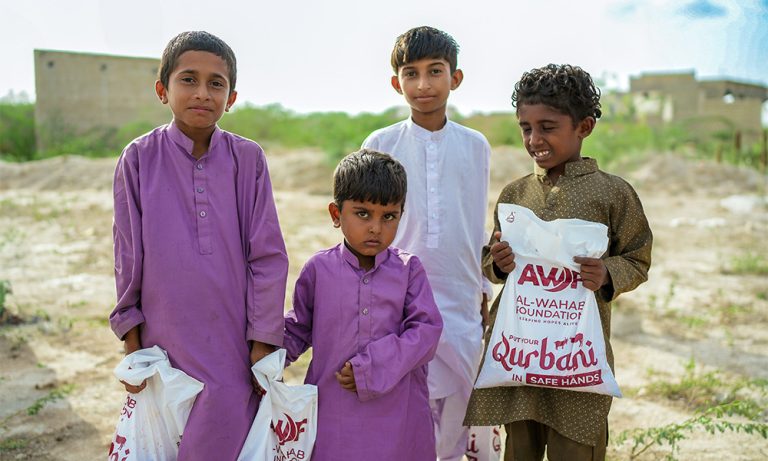
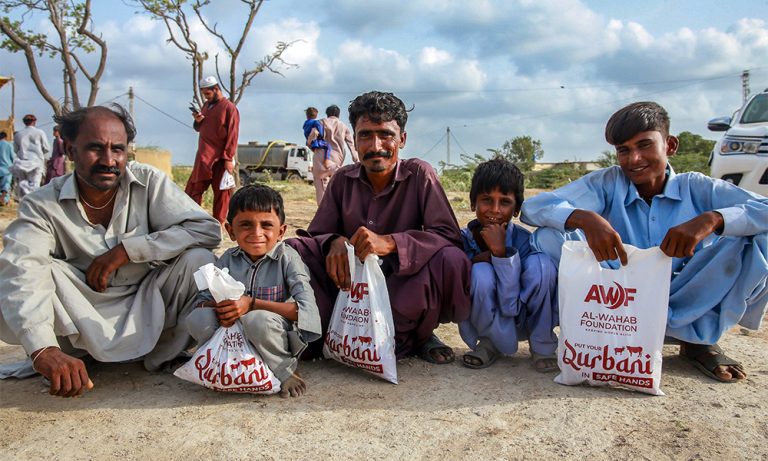
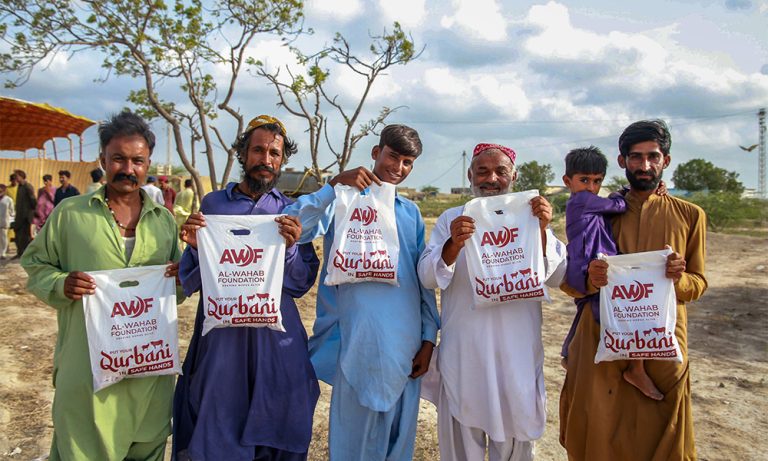
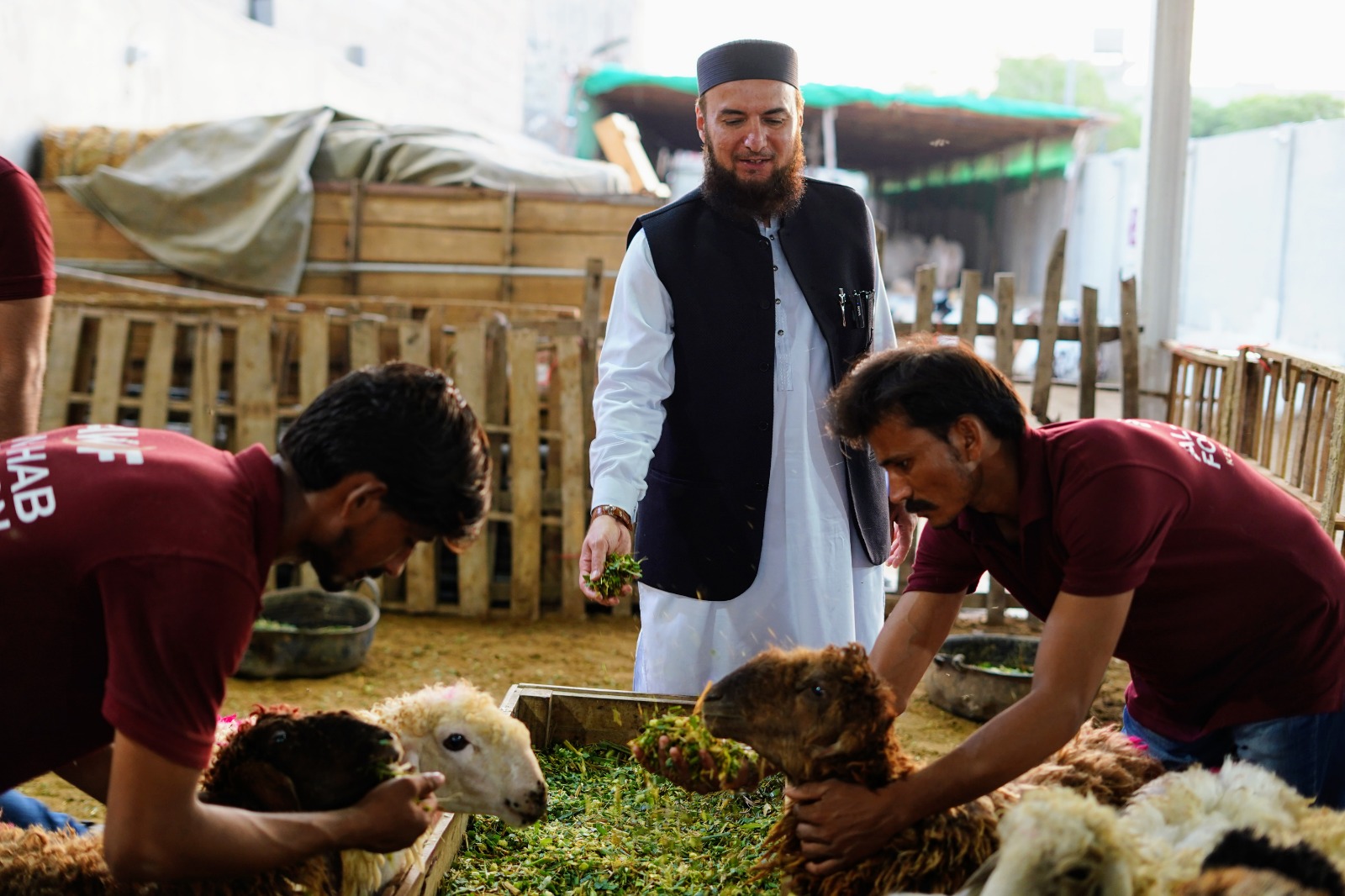
When it comes to offering Qurbani, it is important to learn what is Qurbani to fulfill this sunnah with its true spirit and essence. The literal meaning of Qurbani is 'Sacrifice'. According to the Islamic reference, Muslims around the world sacrifice an animal reflecting the sacrifice made by Prophet Ibrahim (AS) when he was tested for his faith in Allah (SWT).
Qurbani is performed on the 10th, 11th and 12th of Dhul Hijjah. At AWF, we purchase livestock and transport them to poverty-stricken areas for sacrifice so that those most in need can benefit. We prioritise widows, female-headed households and orphaned children who would normally struggle with food poverty and are often alone without support. AWF ensures to follow Islamic practices and processes to deliver your Qurbani donation according to the Sunnah. For giving your online Qurbani donation, book now with Al-Wahab Foundation!
Who has to Give Qurbani?
Muslims frequently ask about who has to give Qurbani? The majority of scholars agree that Qurbani is a sunnah mu'akkadah (highly recommended) or wajib (obligatory) for every sane Muslim who can afford it. It is separate from Zakat or Sadaqah.
The animals that can be sacrificed include are goats, sheep, cattle (cow, ox, buffalo), or camels. Animals chosen for sacrifice must be healthy and free from disease. They must be cared for and treated with kindness and respect.
Book your Qurbani 2025 now for Eid Al-Adha and share the blessings with everyone.
Additionally, you can donate towards providing Cooked Food to those homeless and needy people who are unable to store sacrificial meat through our Qurbani Appeal.
When is Qurbani 2025?
For those looking for when is Qurbani 2025, it is expected to fall on Friday, June 6th, 2025, and end on Tuesday, June 10th, 2025. However, this date can vary according to the moon sighting. We advise you to donate your Qurbani 2025 online as soon as possible to help us make arrangements in time.
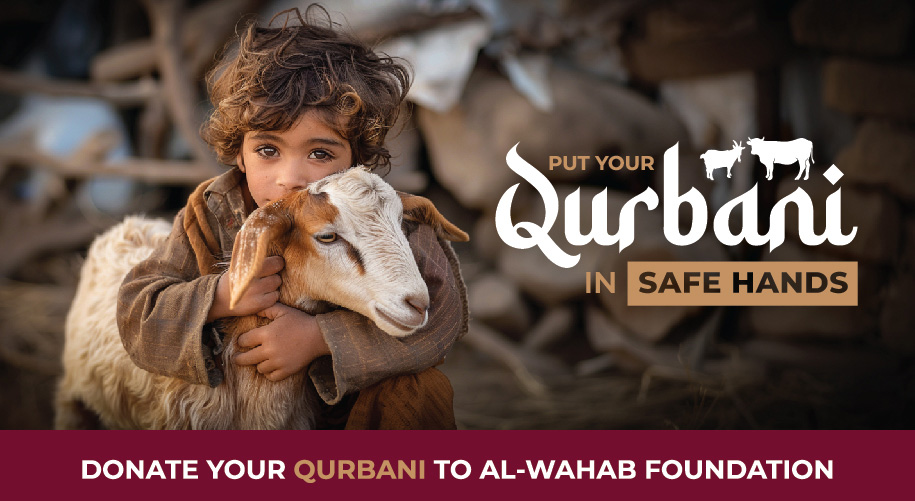
The majority of scholars agree that Qurbani is a sunnah mu'akkadah (highly recommended) or wajib (obligatory) for every sane Muslim who can afford it. It is separate from Zakat or Sadaqah.
For those looking for how much is Qurbani per person, each eligible Muslim should provide one share, which can be a whole small animal (like a sheep or goat) or one-seventh of a larger animal (like a cow or camel).
Qurbani can be performed from the 10th day of the month of Dhul-Hijjah until the sun sets on the 12th of Dhul-Hijjah. The best time to perform the act of Qurbani is immediately after the completion of the Eid-ul-Adha prayers.
Yes, women can perform Qurbani. Qurbani is obligatory on both male and females, as long as they are of sound mind and financially stable.
At Al-Wahab Foundation, you can choose from lamb, cow, and camel to perform your Qurbani through Qurbani Appeal.
How to Donate Your Qurbani with Al-Wahab Foundation?
Through Al-Wahab Foundation's Qurbani Project, together we can spread smiles around by sharing sacrificial meat with the most deserving communities. Your contribution can give hope and nourishment through our Qurbani Appeal.
Online Donation: You can easily Donate to Qurbani Project through our secure online donation portal. No matter how small, your contribution can always make a big difference to those in need.
Our Donation Hotline: Apart from our online portal, you can donate by calling us on our donation hotline at 020 8903 8944.
WhatsApp Contact: You can also contact Al-Wahab Foundation to donate your Qurbani through WhatsApp number at 077 2705 2635.
Join hands with Al-Wahab Foundation and help us transform lives this Eid Al-Adha.
Support Our Cause
Processing...